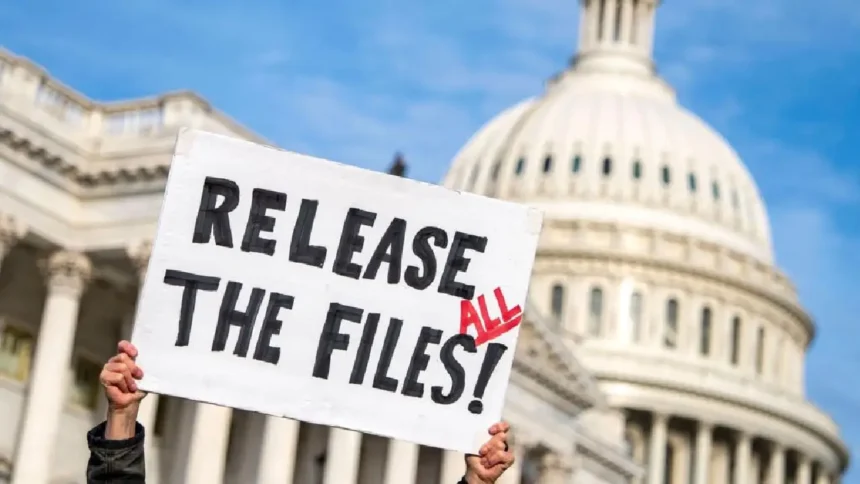Bipartisan 427-1 tally presses Justice Department for full disclosure
In a landmark move, the U.S. House of Representatives voted 427-1 to pass legislation compelling the Department of Justice to release all unclassified files related to Jeffrey Epstein’s investigation and prosecution. The measure now advances to the Senate for consideration.
The Vote and the Measure
The bill, known as the “Epstein Files Transparency Act,” directs the Justice Department to disclose communications, investigative materials and records in its possession connected to Epstein and his associate. The vote came after months of stalling by House leadership and a discharge petition that forced the measure onto the floor.
Just one member of the House opposed the bill: Representative Clay Higgins of Louisiana. He argued that the draft legislation posed risks to innocent individuals named in the files, and called the bill a threat to foundational criminal-justice procedures. All other members present — both Democrats and Republicans — voted in favour.
President’s Shift and GOP Dynamics
The vote marks a dramatic reversal for President Donald Trump. Until Sunday, the president had opposed the legislation, describing it as a “hoax” and urging fellow Republicans to block it. Facing mounting bipartisan support and a growing number of GOP defections, Trump publicly backed the measure, writing that Republicans should vote to release the files “because we have nothing to hide.”
House Speaker Mike Johnson, though supportive of the final vote, made clear he viewed the bill as flawed and expects the Senate to address what he termed “serious deficiencies” particularly around protections for victims and ongoing investigations.
Why It Mattered
The release of these files has been a long-standing demand of Epstein survivors, transparency advocates and members of Congress across party lines. Many believe the documents hold potential insights into Epstein’s network, the actions of his associates, and possible failures of oversight.
For the Trump administration, the vote represents a shift from resistance to endorsement — presumably aimed at controlling the narrative and reducing the political fallout as the files become more central to public scrutiny.
The near-unanimous bipartisan vote also signals record pressure on the Justice Department to comply, and places the Senate in the spotlight regarding whether it will move swiftly, amend the measure or delay it.
Next Steps and Unanswered Questions
With House passage secured, the measure now heads to the Senate. It must clear a 60-vote threshold if amendments are allowed, and receive the president’s signature before becoming law.
Key issues ahead include:
-
Will the Senate make amendments that could weaken the bill’s scope or protections?
-
How quickly will the Justice Department comply once legislation is enacted and will there be meaningful oversight of the process?
-
Will the released material provide new information about Epstein’s associates, or spark fresh investigations?
-
How will the protection of victims’ identities and sensitive investigative information be handled amid demands for transparency?
Final Thought
The House’s 427-1 vote to compel the release of files related to Jeffrey Epstein marks a significant moment of institutional accountability and bipartisan action. It breathes fresh life into long-dormant questions of influence, oversight and justice. As the legislation moves to the Senate, the real test begins: whether the openness promised will materialize in meaningful transparency or become entangled in procedural delays.











